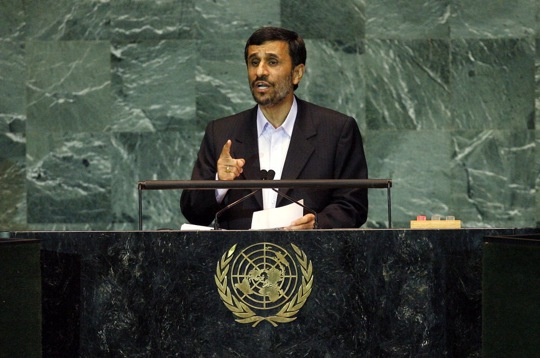Growing Challenges in Ahmadinejad’s Foreign Policy

- The mistake made in Iran’s foreign policy during the past few years is that instead of making efforts to reduce the challenges, they have been increased and naturally, the potency which should have been used to solve some challenges and advance the country’s goals and principles, was utilized to create new challenges.
- Naturally, the main principle in the foreign policy of any country should be détente and the establishment of more relations and taking advantage of more opportunities in the international arena.
- Although the main rule of the game in international relations in the past was based on winning and losing, now it is based on win-win situations. This means that foreign relations with other countries must be set in a manner that we win and the others also feel that they are winning. The most successful recognized diplomacies in the world today are diplomacies which have based their foreign policies on the win-win rule.
- Of course, this issue is not in contradiction with maintaining the principles and values of a country in the area of foreign policy and it can be in line with those principles.
- In our country also, maintaining the revolutionary principles and values in foreign policy is an essential principle which is pursued within the framework of honor, wisdom, and expediency.
- But if we intend to give a scientific interpretation of the events that have taken place within the last few years, we can say that the costs that were paid and the measures that were taken were not necessary and not beneficial for our country.
- The rule of cost and benefit is a recognized rule in diplomacy. It means that for a specific objective, costs must be paid to achieve benefits.
- Therefore, it must be said that from this aspect and due to the positions that were taken in our foreign policy during recent years, the country has paid dearly and will not gain any benefits from them.
- Secondly, during the last few years, there have been simultaneous challenges in various fields. It means that our diplomacy has been challenged in the international and regional scenes and in regional subsystems.
- There is one rational choice in diplomacy that when you are faced with crisis at one point in foreign policy, you must temporarily balance the other areas in order to solve the crisis.
- This is while we see that during recent years, there have been challenges in the international scene, in regional equations, including in relations with Arab countries, and also in the regional subsystems, like our relations with some neighboring countries.
- If we intend to protest against the international structure and laws, we must express it with a diplomatic language. If we consider the present structure and the attitude with regard to our country’s nuclear dossier unjust, we must create opportunities in other areas in order to advance these two goals.
- Even if we do not have a 100% practical look at foreign policy, and we look at it idealistically, we must still observe the priorities. Although drawing policies idealistically is completely meritorious in foreign policy, one must act realistically and pragmatically in order to achieve the same idealistic goals.
- The statement made about the Holocaust is a clear example of the costs the country has paid without gaining any benefit; a huge cost on a path of which the benefits are not clear.
- Of course, I should mention here that many of those who criticize the government’s policies today were previously the supporters and even the executors of this type of dialogue and must directly and indirectly be held accountable.
-Hence, although criticizing Mr. Ahmadinejad and his government has become fashionable nowadays, these people are either not being honest today or were not honest back then.

